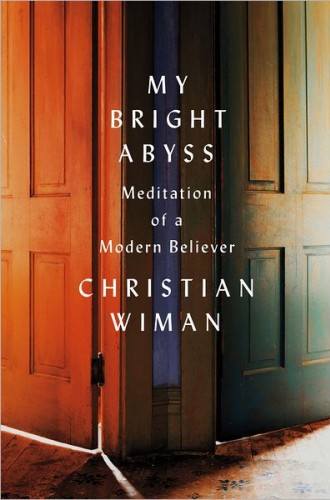My Bright Abyss, by Christian Wiman
Having struggled with a rare cancer that offered little chance of recovery, Poetry magazine editor Christian Wiman has navigated his way through questions of belief and death. His cartography begins early in his life with the story of his grandmother and elderly great aunt. During his early adult years, Wiman lived in a trailer in the yard of “the big house” where they lived. The two women died within weeks of each other, and each came to dying with her own understanding or fear, even as she lived a life grounded in faith. With Wiman’s early lessons in dying came a discovery that he carries through the book: “Concentrating on death,” he writes, “concentrates life.”
Poetry is an essential holding place for Wiman, a place for “the persistent gravity of the ghost called God,” beyond the language of formal religion. It serves as the page on which Wiman explores “how you answer that burn of being” through question and form and meaning and stages of belief. “I knew very well that I believed,” he writes. “I was not at all sure exactly what I believed.”
Wiman looks, clear-eyed, at dying and offers this book as a personal record of his leaks of faith, a record of doubt where, mysteriously, deeply buried seeds of belief were rooting. He returns archaeologically to his own poetry written during a time when he claimed to be devoid of belief and finds traces of what might be called witness. What seems devoid of the language of faith becomes a record of an acknowledgment:





